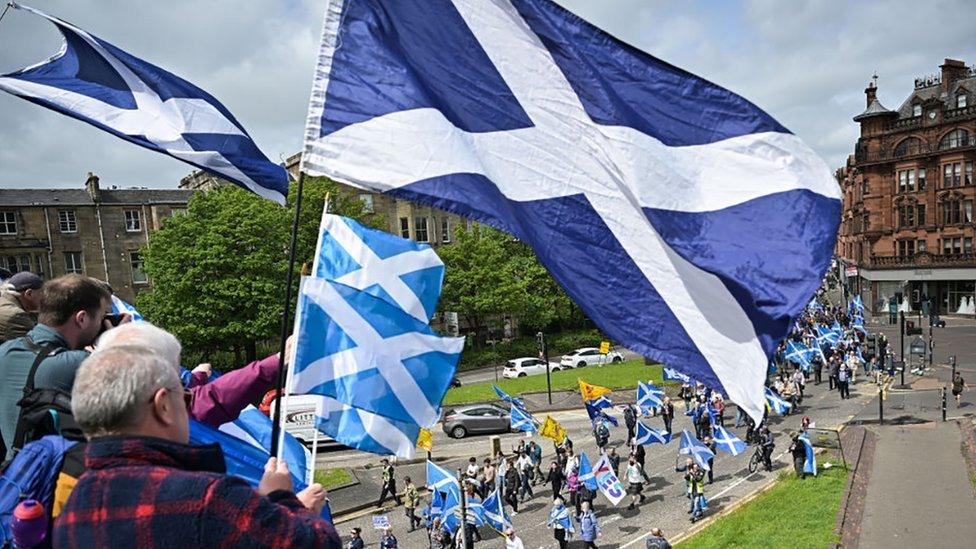At a glance: Constitution plan for an independent Scotland
- Published
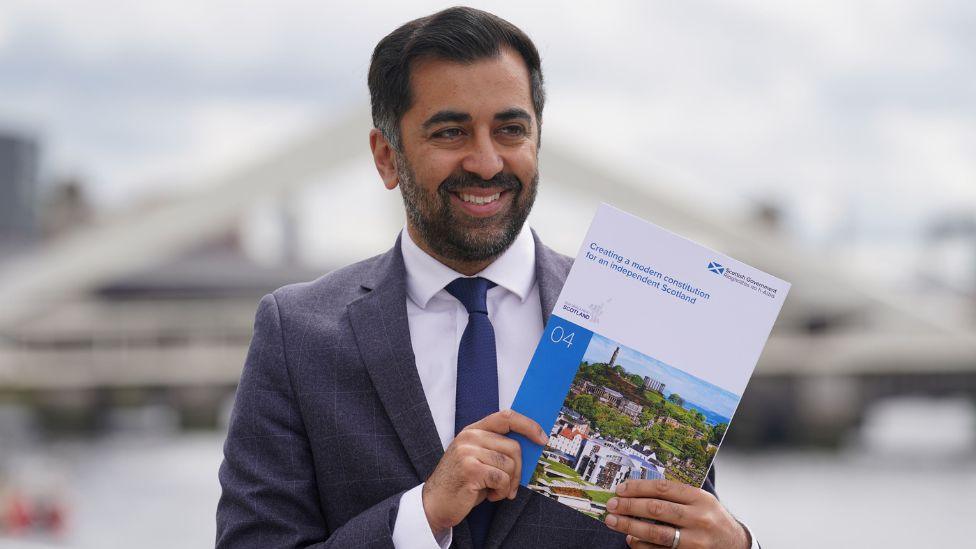
Humza Yousaf has unveiled the latest paper in the Building a New Scotland prospectus
Scotland's first minister Humza Yousaf has announced proposals for a written constitution for an independent Scotland.
The plan is set out in a paper called 'Creating a modern constitution for an independent Scotland' – the fourth in the Building a New Scotland series.
Mr Yousaf said a constitution would "put power in the hands of the people".
The Scottish government said it could provide stronger protections for human rights and equality
Why is a constitution wanted?
The paper notes that although most countries have a codified constitution, the UK relies on a range of laws, conventions, precedents and court judgments under the authority of Parliament and the Crown.
It argues that under this system there is "no way to entrench or protect devolution" and says independence would be a chance for Scots to establish a "permanent, modern, written constitution for Scotland".
The constitution would help protect the rights of the people, according to the government, as well as establishing "the framework for Scotland as a modern, democratic state".
The document would be based on the "constitutional tradition of popular sovereignty, where power and authority rest with the people of Scotland", the paper says.
How would the constitution be created?
The government proposes an interim constitution would take effect on the day that Scotland becomes independent.
A legally-mandated constitutional convention – an independent body set up by parliament and "representative of Scotland" – would draft a permanent constitution, adopting a "human rights-based approach", the paper says.
This process would coincide with a "wider awareness-raising and engagement process".
The permanent constitution could only be approved in a referendum of the Scottish people, the government proposes. If it was rejected, the interim constitution would remain in place until the parliament decided how to proceed, according to the plans.
The paper say this approach "would reflect the global recognition that the direct involvement of citizens is a vital ingredient in constitutional development or amendment", citing recent examples of similar processes in the Netherlands, Ecuador, Iceland, Ireland and Chile.
The approved constitution would include an amendment formula that would make it harder to change than ordinary legislation, the government proposes.
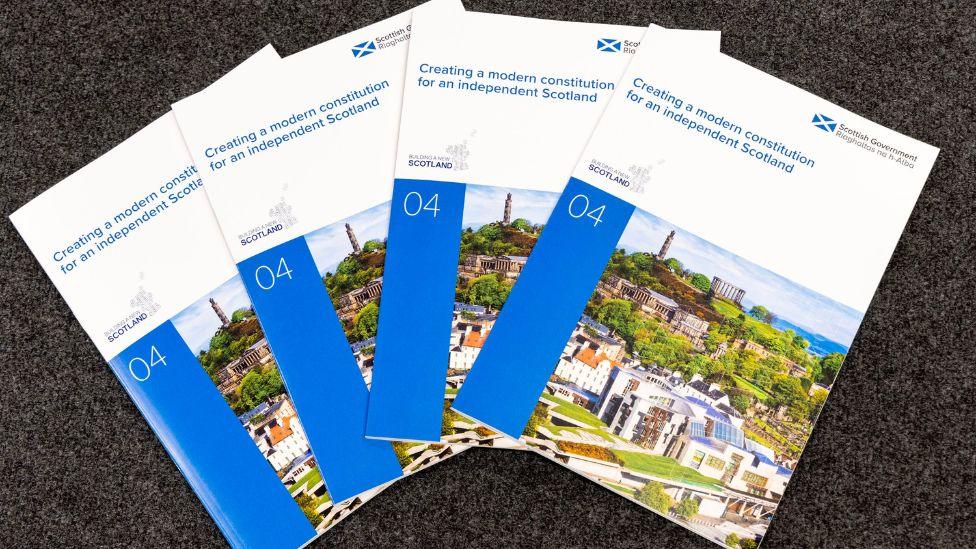
What would the constitution include?
The paper proposes several measures which the government believes should be included in any future constitution for an independent Scotland.
These include recognition of the NHS in Scotland, giving Scots the right to access healthcare available for free at the point of need.
It backs beefed-up protections for human rights and equality laws, including upholding the right to an adequate standard of living as defined by the Universal Declaration of Human Rights.
The right for workers to take industrial action would also be included under the plans, as would a constitutional ban on nuclear weapons being based in Scotland.
A permanent constitution could set out provisions for a head of state, Scottish citizenship, the possible creation of a second chamber in the parliament and strengthened environmental protections, the paper suggests.
Among the other proposals is support for a constitutional safeguard to "ensure that military deployments are made in a transparent and legitimate way".
What are the aims of the constitution?
The report concludes that "only independence" can ensure Scots decide how their country is governed.
It says a constitution would allow the public to make "fundamental choices" about how the state is run and ensure the country has "democracy, human rights and equality at the heart of its foundation".
Scotland could become a "world leader" in human rights and equality protections, the paper says, with the process of creating a constitution helping to create a "thriving modern democracy".
The government welcomes wider engagement with the plans and a discussion about what choices an independent Scotland could make.
- Published14 June 2022
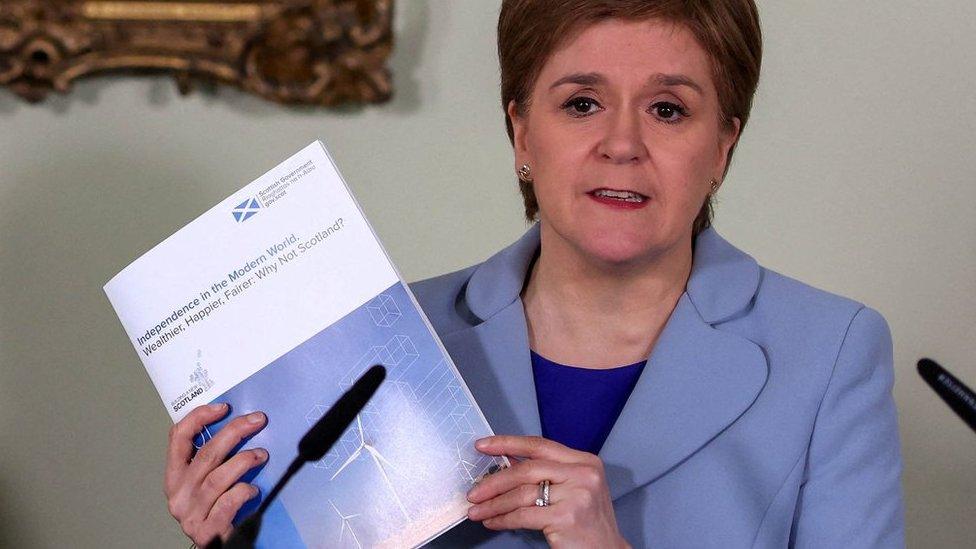
- Published17 October 2022
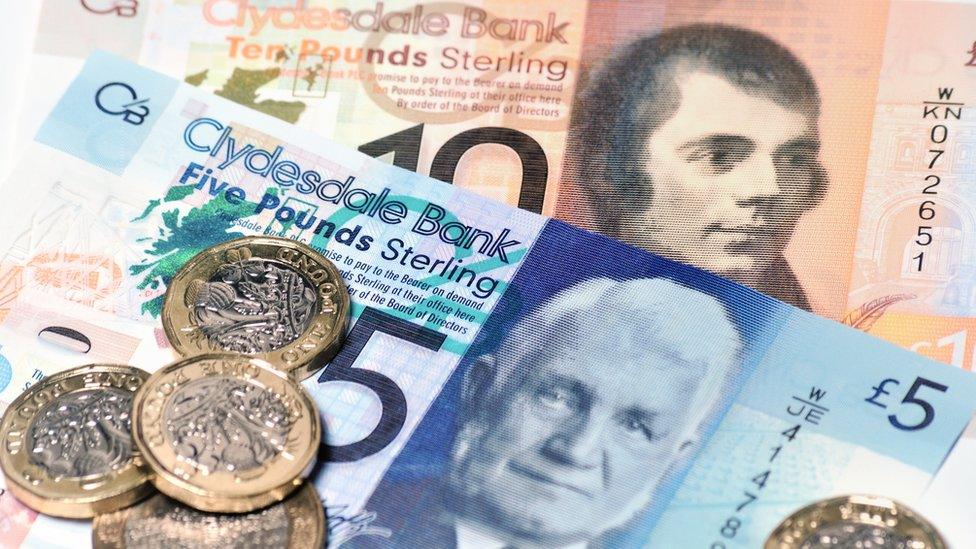
- Published17 October 2022
